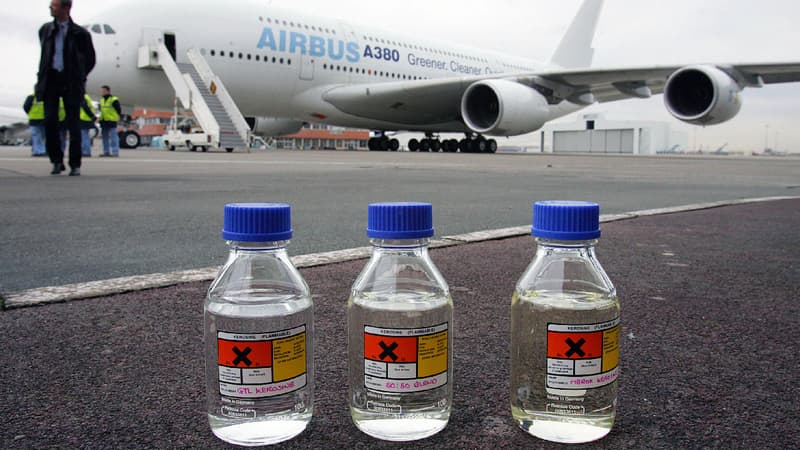The reduction of industrial and transport emissions requires the development of non-fossil synthetic fuels: to promote projects for the production of these electrofuels, the players in the sector announced on Tuesday the creation of a “French Office for e-fuels”.
This Office aims to promote a “virtuous, competitive and sustainable French e-fuel sector” among public and private actors to encourage projects and bring together experts, academics, industrialists and financiers on the subject, they say in a press release.
Among its members are, in particular, the purchasing director of Air France, fuel represents almost 30% of the costs of an airline, the director of the energy transition funds of the management company Mirova or Cédric de Saint-Jouan , president of the strategic committee. by Elyse Energy.
24 production projects
This SME, a pioneer in low-carbon molecules, is a member of the industrial consortium that aims to install a sustainable aviation fuel plant in Lacq (Pyrénées-Atlantiques) by 2027, announced in mid-June by Emmanuel Macron.
Synthetic fuels or e-fuels are produced by combining hydrogen, produced from carbon-free sources such as renewable energy or nuclear, and CO2 captured from the air or industrial fumes.
According to a study by the French Observatory for Electronic Fuels launched on the occasion of the creation of the French Office for Electronic Fuels, France currently has 24 projects for the production of synthetic fuels, representing an investment of 3.6 billion euros.
These 24 projects represent a production capacity equivalent to 528,000 tons of oil (toe), mainly kerosene and synthetic methanol, according to this study carried out by the firm Sia Partners.
Its production will require the capture of 1.7 million tons of CO2 per year and 14 TWh of electricity, that is, the equivalent of 3% of all French electricity production in 2022.
These enormous amounts of electricity are mainly required by the electrolysis of water, in which an electrical current is passed through to extract hydrogen from it.
Source: BFM TV


